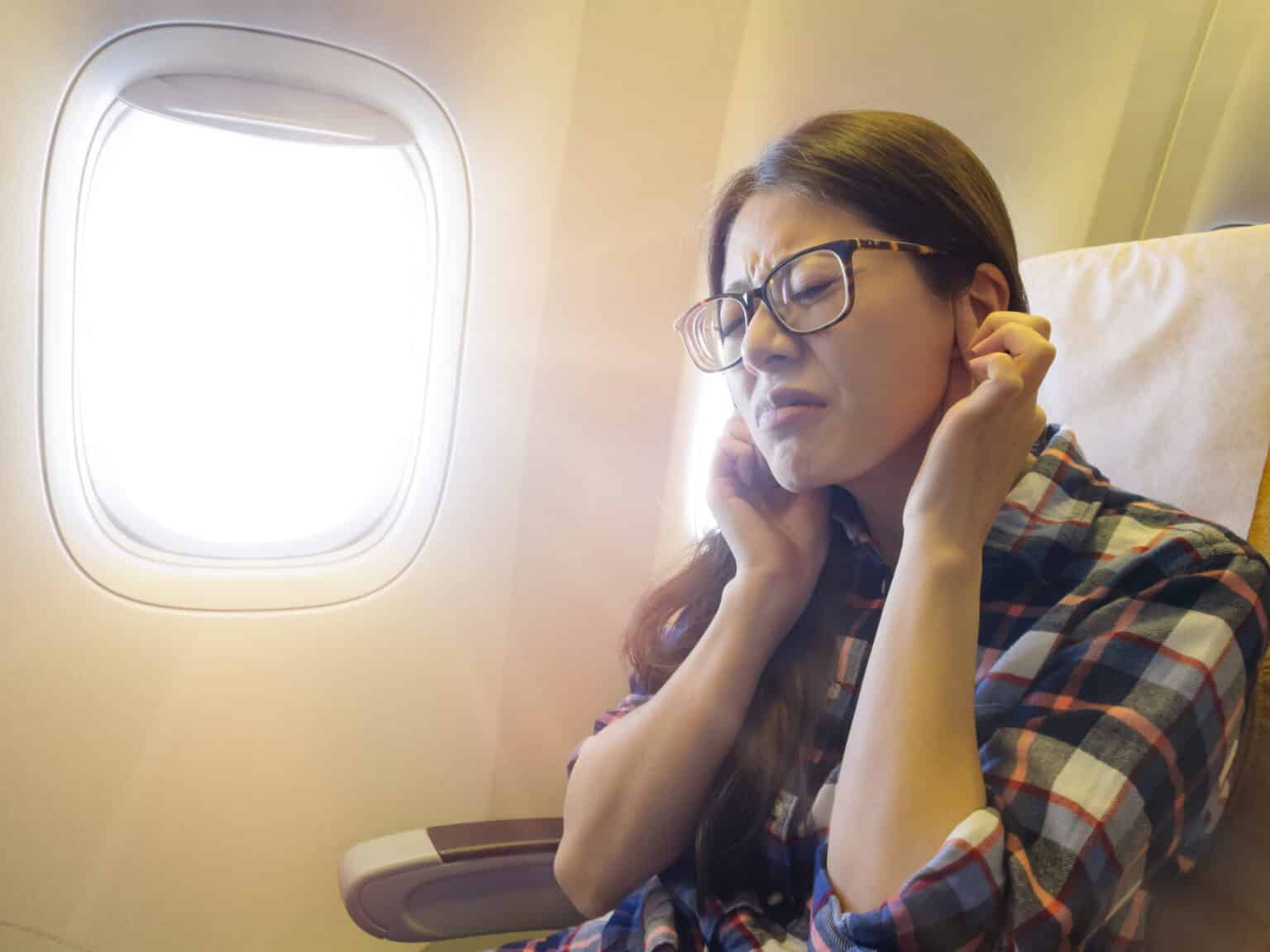Are you someone who experiences tinnitus and is also planning a trip this summer or has to fly regularly for work? If so, you are likely curious as to how to manage your tinnitus and prevent other symptoms of airplane ear while flying.
What Is Tinnitus?

Tinnitus is the experience of ringing in one or both ears. However, some people hear buzzing, clicking, humming or other similar sounds instead. Some people experience mild or transient symptoms that resolve on their own, whereas, for others, tinnitus can be a persistent and annoying distraction that interferes with their lives.
What Is Airplane Ear?
Many of us have experienced pressure or popping in the ears when flying, particularly during takeoff or landing. This occurs because the rapid changing of air pressure puts stress on the eardrum.
Symptoms of airplane ear can vary, with some experiencing milder symptoms like discomfort or temporary muffled hearing. However, in more severe cases, people can experience severe pain, moderate to severe hearing loss, tinnitus and vertigo.
Why Flying Makes Tinnitus Worse
The combination of pressure changes coupled with the loud noise from flying can aggravate your symptoms. In particular, the pressure changes can stretch the membrane of the inner ear and can amplify the ringing or buzzing from tinnitus.
What To Do To Protect Ears When Flying
If you have tinnitus, there’s no need to dread your next flight out of CVG Airport. Just follow these tips to help minimize your symptoms:
- Wear noise-canceling headphones or earmuffs. While you don’t have to wear them the entire flight, they can be especially helpful during takeoff when engines are at their loudest. Avoid earplugs, as these can actually intensify your tinnitus.
- Sit away from the engine. Try to select an aisle seat towards the front of the plane, as this will be quieter than window seats or those further back.
- Avoid flying when congested. If you have a cold or bad allergies that are causing nasal congestion, try to avoid flying. The congestion can clog your Eustachian tubes as well, making it harder for them to equalize pressure in your ears and leading to a host of unpleasant symptoms. If you can’t reschedule your flight, consider taking a decongestant beforehand to relieve congestion.
- Try to stay calm before and during your flight. Stress can increase your tinnitus symptoms. Try to get a good night’s sleep before your flight and engage in calming activities like meditation or breathing exercises. Watch movies or listen to music on the flight to distract you and minimize or mask your tinnitus.
- Use your hearing aids. If your tinnitus is due to hearing loss, hearing aids can help minimize your symptoms. Additionally, using them can make it easier to hear important announcements or talk with others on a flight.
To learn more or to schedule an appointment with one of our hearing experts, call Certified Hearing Aid Consultants today.